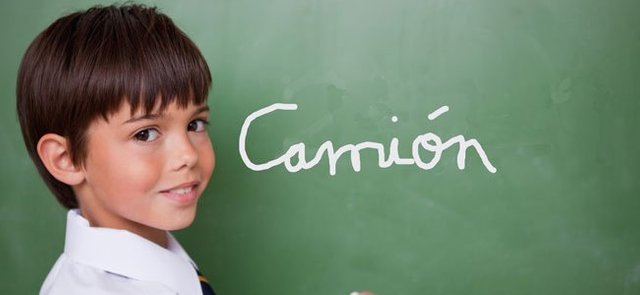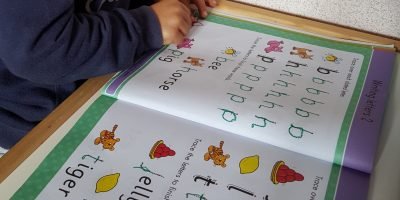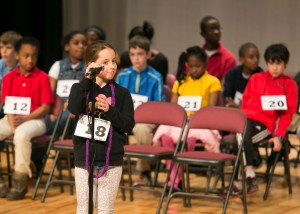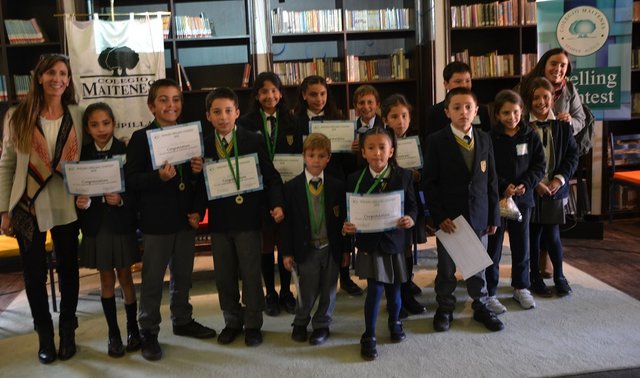HOW TO IMPROVE CHILDREN'S ORTHOGRAPHY

Spelling is the set of rules that regulate writing. It is part of the normative grammar since it establishes the rules for the correct use of letters and punctuation marks.
Written communication has many receptors and among its advantages is that it can remain over time. That is why it should be given the importance it has, because if the spelling is incorrect the message would arrive deformed to the recipient, meaning that what is intended to be communicated has not been done properly.
It is clear that spelling is the fundamental basis for proper writing, because it contains a series of rules that allow a good understanding of the message that is to be transmitted, such as: the proper use of letters, the accentuation of words, the signs of punctuation and other signs that are very important to take into account when writing a text, for its proper interpretation.
Therefore, the success of a good spelling begins to practice from childhood, from its beginning in the school stage, children should be supported by their parents and teachers, an expression that makes the practice by the use of orthographic rules in them to allow them to have a correct spelling.

It is from seven or eight years of age, when the child begins to master reading and writing is when he begins to understand about the existence of orthographic rules, without neglecting some problems of auditory, visual and disorders such as dyslexia among others.
How can parents help at home with children's spelling?
Parents can help their children in many ways, some of them are:
- Encourage the habit of reading

In principle check that the reading is consistent with the age of your child and your taste, so that it is easy to understand what you read. Let him understand that spelling mistakes are corrected with reading, that if you practice it every day your spelling will be better every day.
Learn with images or develop games where they can put into practice the use of spelling, such as:
Lotteries with the letters of the alphabet or with sounds to make words.
Investigate words with the use of the dictionary.
Draw pictures and write briefly about them.
Word game that can be played as a family with children, where the winner is the one with the most words written correctly.
Take the opportunity of your enthusiasm and put into practice the words of spelling that children like a lot and can do at any place and time of the day, because when they learn to read all the signs they see, they draw attention to the reading.
What strategies can the teacher use to improve the spelling of the children?
The teacher is a constant investigator in the search of strategies that allow him to improve the problematic situations that appear in the classrooms with his students and of that search the spelling is not escaped that is fundamental so that it arrives with clarity the message that is wished to transmit to the writing correctly words, including visual memory has proven to be a strategy that has given very good results for the acquisition of learning in children because it is much easier for them to remember how words are written when presented with the drawing.

Here are some strategies for correcting spelling:
* Make calligraphies with words that children can investigate with the use of the dictionary, so that they understand their meaning.
- Plan and execute games grouping children by teams, where they can compete on the proper writing of words, this is very fun, It is important to leave the rules clear from the beginning, letting them know from the beginning that there will be no losers , because all the participants will be rewarded only that the prize of the winners will be a little bigger so that the children are motivated to do better next time.

- Make with the children crafts with recycled material to work with the letters, so that they can form words:
- alphabet soup: these allow through the process of searching for words related to a specific topic, improve the reading and writing of the child, exercise their brain and quickly master their languages.
- Encourage the use and management of the dictionary in the classroom, so that children learn the correct writing of words and their meaning. For example the dictionary career game.
- The dictionary course consists of dividing the children into groups of 5 participants or more, depending on the enrollment and the time you wish to use in this dynamic, they are assigned the search of five words selected by the teacher and unknown by the children, Each child in the group must extract the word from a box. The competition consists of who does it in less time, writing its meaning on the board, as well as forming a sentence with it with the help of your team.
- Have children read in the classroom, taking into account their orientation regarding the proper intonation of the words. It can motivate children to creative reading. Example:
- Make a box with recycling material with the children, where you insert cards with written words referring to objects, person, animals, fruits, things and ask each child in your class to choose three cards. The game consists of the child creating his own story with these three words. He is given a time for it, at the end of writing it must read it out loud, to be heard by the rest of the class and then the teacher will guide the child to correct spelling mistakes if any.
- Make spelling bee in the classroom with the students, where they can put into practice the reading and writing, always taking into account to make clear the rules of the game so as not to create a trauma in the children that in a first At the moment they do not have a good performance, everyone should be valued and respected by their peers. This game also allows to improve the spelling of children, strengthen values such as teamwork, respect, responsibility, companionship, empathy, patience, among others.

The teacher must consider which children participate in the game and incorporate them as they progress in their learning. If you plan to award a prize to the participants try to involve everyone, reward performance of those who did not do so well, with something small so that they are motivated to do better next time.
Undoubtedly, parents, along with teachers, are responsible for guiding and supervising children's writing so that every day they have fewer mistakes and reach the excellence of spelling.
As for the strategies you can see, they are very easy to implement both at school and at home, for the benefit of children from an early age.
Because it is very important to know how to write so that your intellect is valued and a good spelling in the presentation of a written text demonstrates quality and clear communication.

Until a future publication, I hope you can put it into practice to help children with spelling.
If you would like to support the educational community by delegating to @steemiteducation, please click on any of the following links. This will ensure that more teachers are supported on a daily basis.
100SP 200SP 300SP 400SP 500SP 750SP 1000SP 2000SP 3000SP 4000SP 5000SP 10,000SP 25,000SP
I sure will, thanks